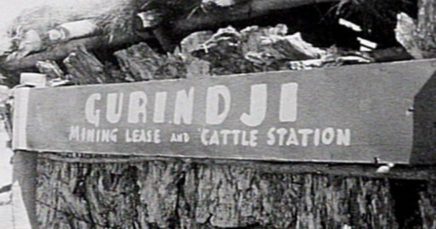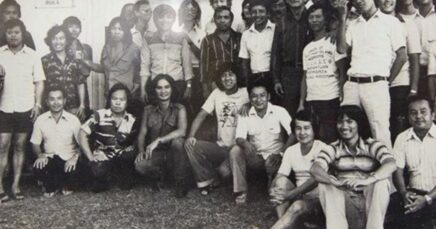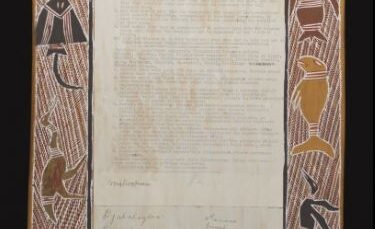
There is a long history of Indigenous workers being denied equal pay in Australia.
Before 1966 it was common in many industries for Indigenous workers to often be paid around one-third of what non-Indigenous workers were paid.
Many Indigenous workers were forced to work for rations.
This came alongside a whole slate of racist laws and restrictions on Indigenous people that sought to deny them control over their own lives.
Indigenous peoples have a long and proud tradition of campaigning against this racism, and for the dignity and respect that they deserve.
From 1946 to 1949 Indigenous pastoral workers in the Pilbara launched a strike against racism and for equal pay – with some Indigenous workers winning award pay rates as a result.
In 1950, Indigenous protestors at the Berrimah reserve, just outside of Darwin, who were employed by government departments launched a series of strikes for pay equity, and for broader equality.
A particular flashpoint in the campaign by Indigenous workers for equality and respect was the pastoral industry.
Indigenous workers were excluded from the industry awards, denied equal pay, and subject to a series of racist restrictive regulations.
This led to campaigns for equity by organisations such as the Northern Territory Council for Aboriginal Rights, which campaigned for wage equality under the guidance of prominent Indigenous leaders such as its such as its secretary, Davis Daniels.
The Council helped build pressure for equality, for example, organising Indigenous workers to march in Darwin’s May Day rally demanding equal work for equal pay.
In September of 1963 Indigenous activists and their allies had helped persuade the Australian Council of Trade Unions to adopt a policy at our Congress supporting equal pay for Indigenous Workers.
In January 1965 the North Australian Workers’ Union lodged an application with the Arbitration Commission to delete the provision of the award covering workers at cattle stations that prevented Indigenous workers from gaining equal rights.
A campaign of public pressure in support of the claim for wage equality was launched across the country.
The Cattle Producers Council submitted a series of racist arguments to the Commission, degrading the contribution of Indigenous workers to the industry.
In March 1966 the commission handed down its decision in favour of equal wages – but in a racist insult to Indigenous workers, deferred this equality until December 1968.
Its decision explicitly stated that part of the rationale for the delay was to give station owners time to consider if they wanted to replace Indigenous workers with white labour.
Indigenous pastoral workers took action, demanding equality immediately.
Dexter Daniels was the Aboriginal Organiser with the North Australian Workers Union. Mr Daniels played an important role in helping Indigenous workers organise themselves to take action.
In April of 1966, 80 Indigenous workers at the Newcastle Waters cattle station in the Northern Territory, walked off demanding pay equity immediately.
Led by Lupna Giari and supported by Mr Daniels it was an important act of defiance, supported by donations from trade unions.
The North Australian Workers Union banned Mr Daniels from taking further action and extending the strikes. Mr Daniels refused, took leave from the union, and went right on organising.
In August of 1966 Mr Daniels supported the Gurindji stockmen at the Wave Hill station when they walked off under the leadership of the legendary Vincent Lingiari.
The Gurindji strike lasted for nine years. Soon, it became clear that while the campaign for equal wages was a major spark for the walk off, it was also more broadly in opposition to racism, and for respect and recognition.
Respect for their dignity as human beings, and recognition of their status as the traditional owners of the land.
The heroic actions of the Gurindji workers is seen as a defining moment in the modern land rights struggle, and in 1975, they won rights over part of their lands. Trade union support helped sustain the Gurindji, in an important act of solidarity.
We remember today the heroism of the Indigenous workers, activists, and leaders who led this incredible movement for equality – but we do so knowing full well that the struggle continues.
Today, under the guise of the racist Community Development Program, many Indigenous workers continue to be denied equal wages.
This is why the First Nations Workers’ Alliance continues to campaign against this racist treatment today. Find out more about the FNWA and how you can get involved here: https://fnwa.org.au/



